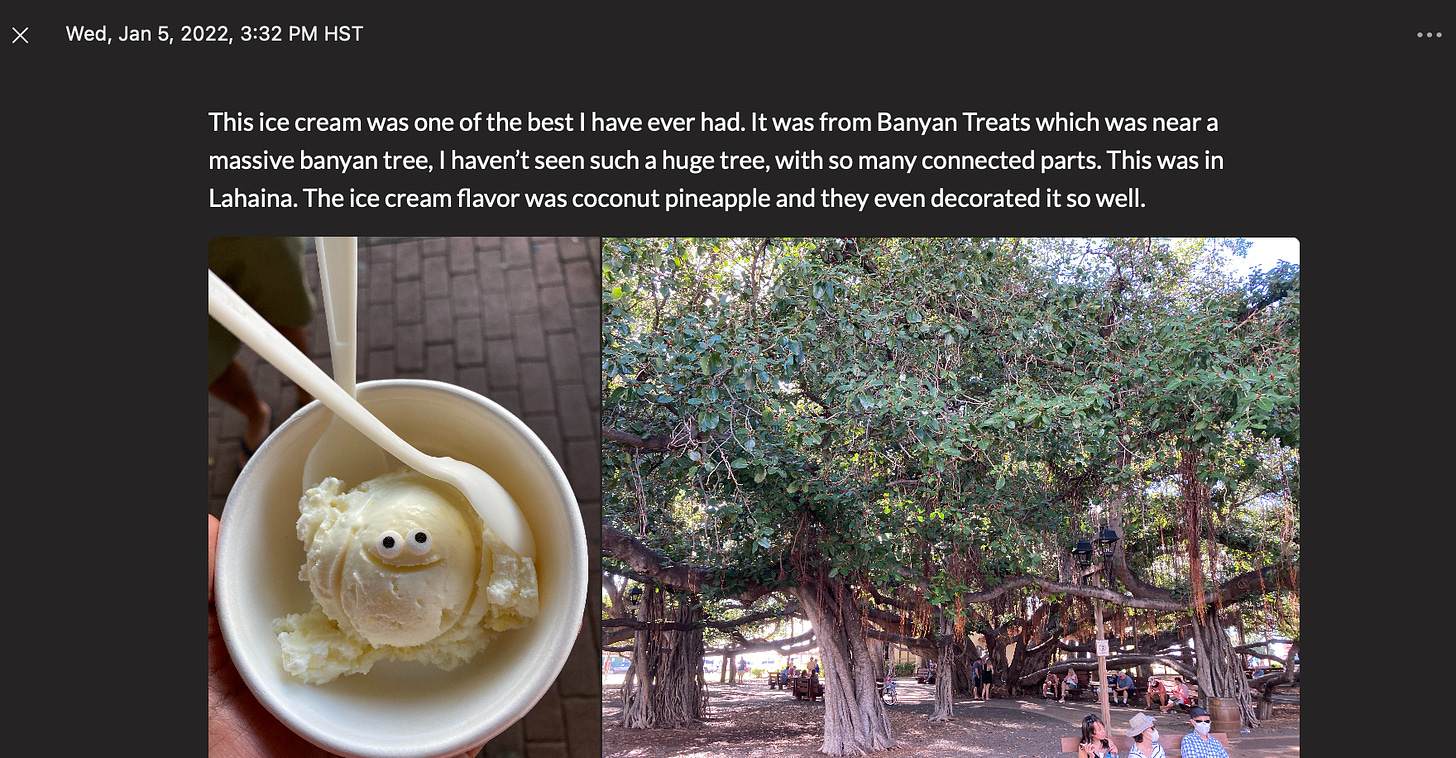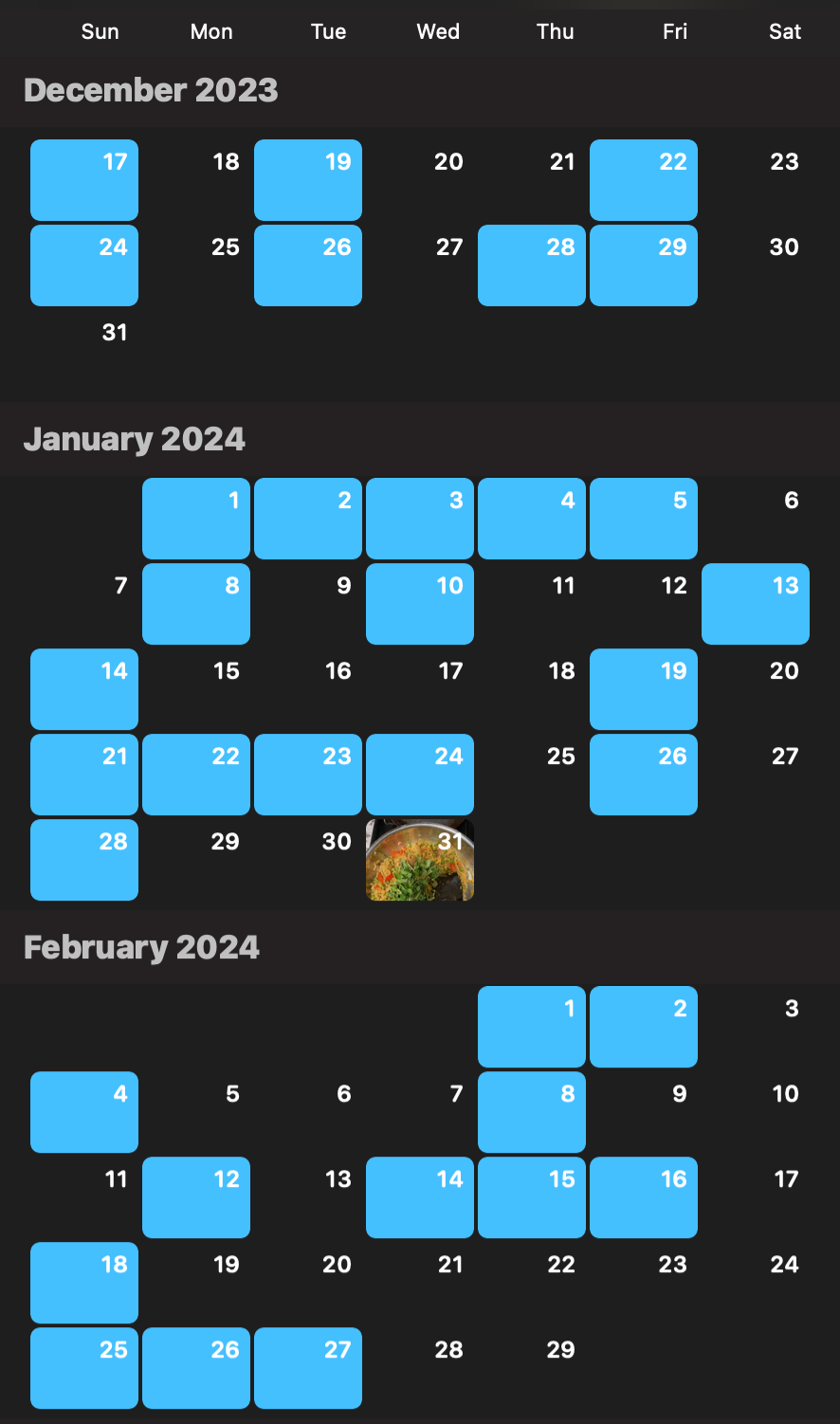In the book 12th Fail, the night before his final interview to become Indian Police Services officer, Manoj Sharma (the main character from the book) does not know what to prepare for. He has already read whatever he needed to for the interview. So, instead he turns to his diary which he has been keeping since his childhood, and starts reading the entries he has written. Through reading his diary, he recalls all the challenges he has faced in his journey, all the people who have supported him through all those years, and all the emotions he had felt along the way. He could not be better prepared for the interview and he talks about moments from his journey to pass the interview the next day. I have also experimented with journaling in childhood before I even knew this practice of writing your feelings in a diary is referred to as journaling. But my experience was very short lived. My sister found my diary one day and narrated the innocuous but still secret feelings of a 9 year old to the whole family. From then, I realized that writing personal stuff in a diary was not going to work. I wasn’t going to be able to hide it and even if I told others not to read it, it was only going to spark their curiosity even more.
Fast forward to November 2021 when I started experimenting with a digital version. I installed the Day One app where I could password protect my journal, and I have been currently writing in it on and off since then. It tells me that there are currently around 250 entries that I have written, so roughly one every three days. What I write in it varies a lot. I am still very much a beginner when it comes to journaling and I am learning things along the way. In this post, I discuss the Why, What and How of journaling that I have learned from my experience which can hopefully also help you in your journey.
Why write?
There is an increasing literature on benefits of journaling. Personally, I think it can be helpful for the following reasons:
- Document and review your life: In my opinion, one of the best reasons to journal is to document your life and review your entries later. Day One app has this nice feature called ‘On this day’. On the days where there is an entry, it would give a notification that ‘You have x number of entries to review from this date’, and then show you the entries by year. It is like google photos but for journal entries. It’s nice to review what I had taken the time to write down on this day in the past years. Sometimes, it can be a heavy feeling or a struggle that I was facing, other times, it can be fun memories of something I was doing that day or just something I ate that day. Of course, here, the more data that you have, the better it is. That’s why I feel the earlier one starts journaling, the better it is as then you have more data to look back on.
One of the entries from my journal

- Learn about yourself: It can help you gain a better understanding of yourself. Especially if you answer the same prompts over and over again (which we will talk about later in this post), you start to realize what things matter more to you, or what you most cherish about your work or some other aspect of your life.
- Focus on the good parts: Particularly when things are not so great, it can help to go to your journal at the end of the day and write down one pleasant thing that happened in the day. It can be a beautiful bird you saw, a friend who called you after long, someone kept the elevator open for you as you were running to catch your train, the warmth of sun you felt after weeks of rain, or the other way around, feeling the rain after days of heat, or just anything else. I feel that having something to write in your journal can also make you look out for these things which can be easy to miss sometimes.
- Let go of the not so good parts: A journal can also be used for writing down some heavy emotions you are feeling. Writing them down helps create a distance from the heavy emotions, which in turn can help untangle them, understand them better and eventually feel a bit lighter.
- Track your goals: I would like to do this more but if you are working towards something, a journal can be useful to write down the progress you are making and come up with ideas about any bottlenecks you might be facing.
What to write about?
I think one main area where many people get stuck is what to write. They may be interested in journaling, may even have tried it a few times, but they get stuck on what they will write about. There are no rules really and you can write about absolutely whatever you want, how your day went, how you are feeling, what you are looking forward to and the list goes on. But I can understand that for some people, this idea of ‘Just write about anything’ doesn’t work that much. This is where journaling prompts can be helpful in providing some structure and constraints on what to write. Even for people who enjoy writing about anything, prompts can take your journaling to the next level. The list of prompts is endless and you can make your own, but here are some to get started:
- What is one good thing that happened in the last day?
- What is one thing I can do to make the next day one percent better?
- What was the highlight of my day/week?
- What is something that I am looking forward to in the next week/month?
- What is one thing I am working to develop in myself?
- What is my favorite picture that I clicked from last month? What do I like about it?
You can answer some prompts on a daily basis and others on a weekly/monthly basis. Feel free to create your own prompts depending on what you would like to capture. Answering these prompts over time can help you keep track of your progress and you also start learning more about yourself.
When to write?
Here, also, write any time of the day and at any frequency that works for you. If daily is not sustainable, try weekly. If right before bed is not sustainable, try early morning or in the day when you have some time. I don’t have a fixed schedule myself. Currently, my process is that whenever I have some window of time, and something to capture, I do that. Ideally, I would like to take a few minutes daily to answer a couple of daily questions, and then take around half an hour every Sunday to answer a couple of weekly questions. But I have been quite far from that ideal cadence for now. Here is a screenshot of my calendar with entries from Day One:

How much to write
Again no rule here, do what works best. In the beginning, if you are struggling to sustain it or if it seems a heavy lift, just start with five minutes. You can even set a timer of five minutes and end when that is done. Some of my entries tend to be couple of sentences long while others can easily cover a page.
Where to write
This is the fun part. Here, the main choice is between a physical notebook and a digital one. Both have their pros and cons. It can be fun to pick a nice notebook and a nice pen. There are plenty of options available digitally too. Apple has also introduced a built in app for journaling. There are also other options including Journey, Five Minute Journal, Diarly. I personally have only used Day One and if multiple options overwhelm you, you can just use Day One and it won’t disappoint you. The free version allows for one device, one journal, one entry and one picture per day. The paid version costs ~$3 per month and gets rid of these limits. They also advertise end-to-end encryption. I took it to my wife who has a PhD in Computer Science to check if it was sufficient for security, and she explained it to me very nicely, saying: “While end-to-end encryption offers a robust security blanket for data in transit, its effectiveness hinges on the underlying cryptographic algorithms and implementation protocols, rendering the overall security posture a function of both the encryption method and the specific execution.” So, make of that what you will.
One main thing to take away is that there is no right or wrong way of journaling. Choose the option with least friction and most importantly, have fun with it.